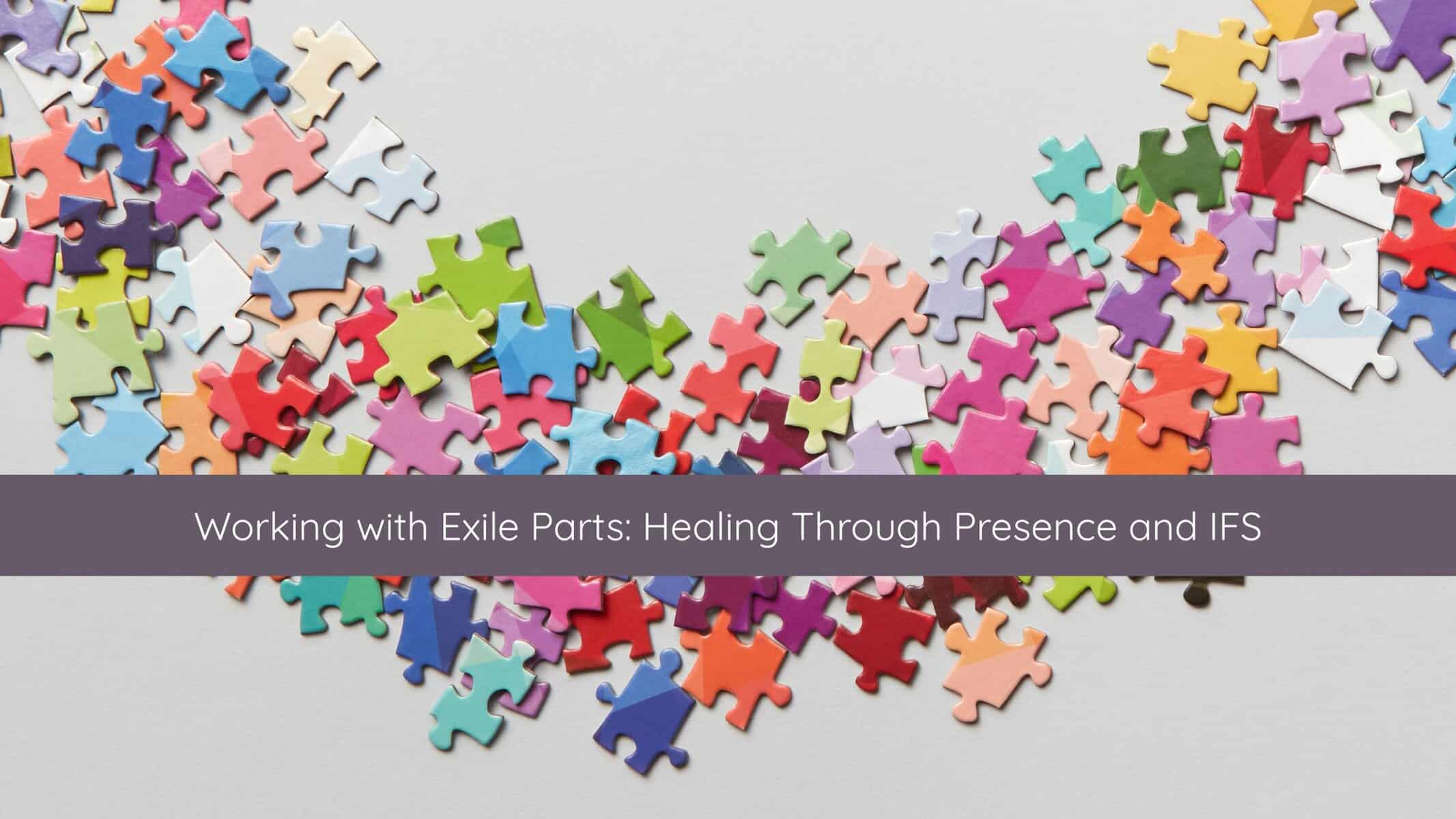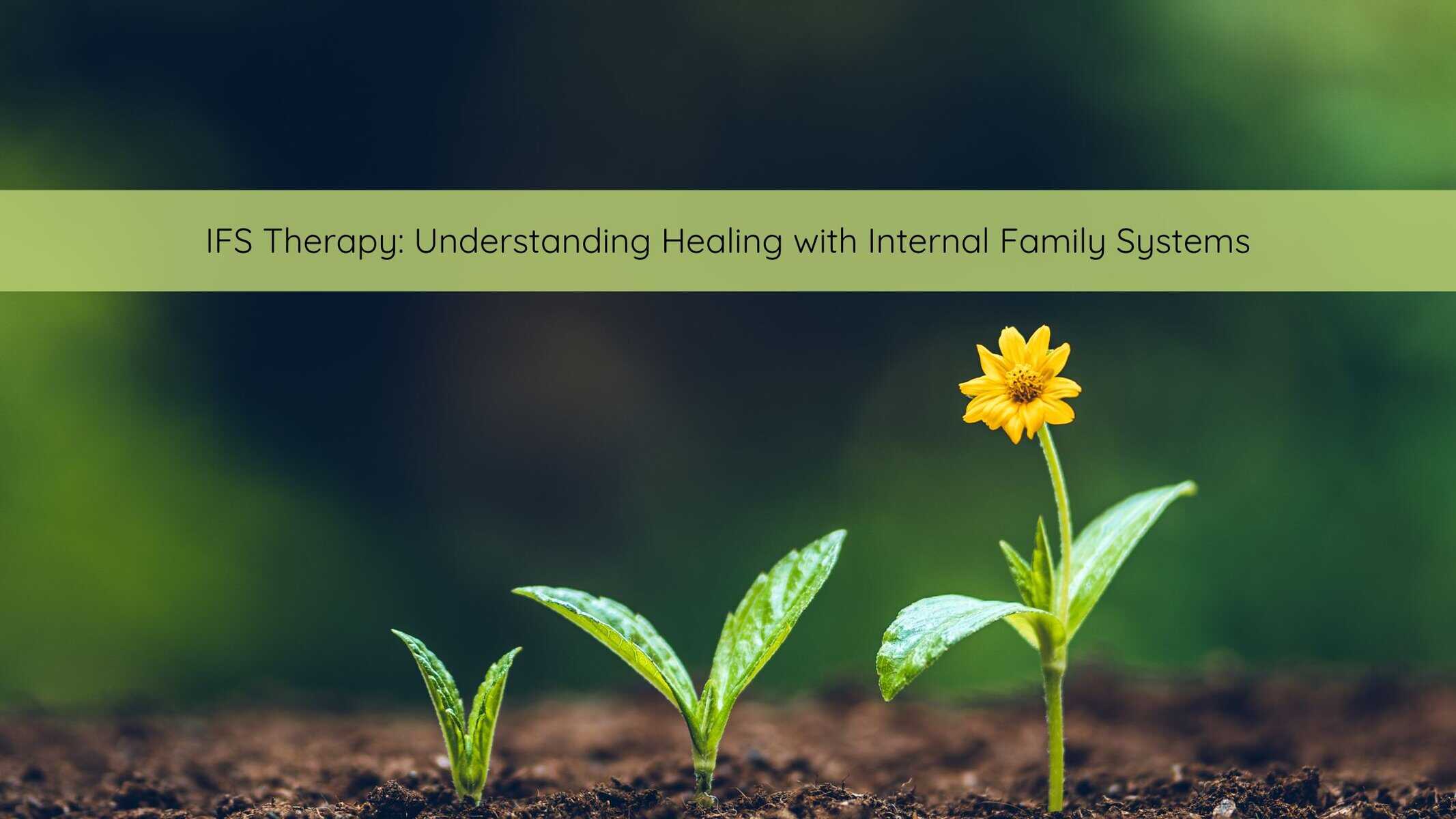IFS Therapy
Find Healing Through IFS Therapy in Denver
At The Catalyst Center, we believe true healing happens when you can connect with and care for all the different parts of yourself. Internal Family Systems (IFS) Therapy is a powerful, evidence-based approach that helps people navigate trauma, anxiety, depression, eating disorders, and relationship struggles by fostering self-awareness and inner harmony.
IFS therapy isn’t about fixing or changing who you are—it’s about building a more compassionate relationship with yourself. Whether you’re healing from past wounds, feeling stuck in inner conflict, or seeking deeper personal growth, IFS offers a gentle, non-pathologizing path back to your true Self.
“The wound is the place where the Light enters you.”
~ Rumi
What Is Internal Family Systems (IFS) Therapy?
 IFS therapy is based on the idea that we each have a system of “parts”—inner voices, emotions, or sub-personalities—alongside a core Self that is naturally wise and grounded. Rather than seeing parts as problems, IFS invites you to befriend and understand them.
IFS therapy is based on the idea that we each have a system of “parts”—inner voices, emotions, or sub-personalities—alongside a core Self that is naturally wise and grounded. Rather than seeing parts as problems, IFS invites you to befriend and understand them.
Developed by Dr. Richard Schwartz in the 1980s, IFS therapy is both deeply respectful and non-pathologizing. It recognizes that all parts have a positive intent, even if their methods cause distress. By building a relationship with your parts, you can begin to heal the wounds they carry and lead your life from Self.
IFS is widely used for trauma recovery, anxiety, depression, eating disorders, relationship struggles, and more. Its flexible framework makes it helpful for individuals, couples, and those engaging in psychedelic therapy or seeking spiritual growth.
How IFS Therapy Works
Reconnecting With Your Parts
At The Catalyst Center, many of our trauma-specialized clinicians use IFS therapy to help clients:
- Heal from trauma and PTSD
- Navigate anxiety, depression, and emotional dysregulation
- Address disordered eating and body image concerns
- Improve relationships and attachment patterns
- Soften inner critics and perfectionism
- Prepare for and integrate psychedelic experiences, including ketamine-assisted psychotherapy (KAP)
- Explore spiritual and existential questions with greater clarity and compassion
You might begin by noticing a part of you that feels anxious or reactive. Through gentle curiosity, you learn what this part is trying to protect. Over time, as you build trust and understanding, parts begin to unburden old beliefs and pain. The result is greater internal peace, balance, and resilience.
A Tailored Approach to Healing
IFS therapy can be used on its own or integrated with EMDR, somatic therapy, or mindfulness practices. We also offer IFS intensives and IFS-informed KAP sessions for clients seeking immersive, accelerated healing experiences.
IFS Therapy for Trauma Recovery
Gentle, Non-Pathologizing Trauma Work
Many clients who have experienced trauma come to us carrying a system of parts designed for survival. IFS offers a non-pathologizing, respectful way to connect with these parts—including those that hold pain, fear, or shame—without re-traumatization.
We use IFS to support:
- Complex PTSD & Dissociation
- Childhood Trauma & Attachment Wounds
- Trauma-Related Eating Disorders
IFS doesn’t rush or override protective parts. Instead, it honors their role and allows healing to unfold at a pace your system can manage. This helps restore a sense of safety and control from the inside out.
IFS & EMDR: A Synergistic Approach
At The Catalyst Center, we often combine IFS and EMDR to support deep trauma processing and emotional integration.
- IFS helps prepare your nervous system and internal system by fostering inner safety and Self-leadership.
- EMDR facilitates the release of stuck trauma responses.
- Together, they ensure protective and wounded parts stay engaged, seen, and supported throughout the healing process.
This combined approach is particularly effective for clients with complex trauma or dissociation, or for those who have found previous EMDR work overwhelming.
 Psychedelic Integration & Ketamine-Assisted Psychotherapy (KAP)
Psychedelic Integration & Ketamine-Assisted Psychotherapy (KAP)
Our team specializes in using IFS therapy in Denver as a foundational approach in Ketamine-Assisted Psychotherapy (KAP) and psychedelic integration. These powerful experiences often surface strong emotional content and parts that have long been exiled. IFS provides a safe, structured way to navigate these experiences.
How We Use IFS in Psychedelic Therapy
- Preparation: Identify and build relationships with parts that may emerge during a journey
- During Journey: Help maintain internal clarity and Self-energy in expanded states
- Integration: Ground insights and emotional shifts with structured, compassionate follow-up
We also offer Low-Dose KAP + IFS Intensives, which combine low-dose ketamine with parts work therapy for deeper access to internal material. This structured, immersive format is ideal for working through rigid protective systems, trauma-linked eating disorders, and spiritual breakthroughs.
Why We Believe in Parts Work Therapy
IFS therapy has transformed the way we approach healing. Instead of focusing on symptom reduction alone, it invites you to create lasting inner change by tending to the roots of your distress. Our team includes clinicians trained through the IFS Institute, including one therapist certified at both Level 1 and Level 2, as well as others who have completed an intensive 60-hour training through Stepping Stones or bring IFS-informed expertise into their work. This depth of training allows us to tailor the approach to your system with care, precision, and flexibility.
We’ve seen clients rediscover joy, build healthier relationships with food and body, reconnect with their purpose, and experience profound internal peace. Parts work therapy isn’t about fixing you—it’s about helping you access the Self you already are.
Whether you’re new to therapy or looking for a more integrative approach, IFS therapy at The Catalyst Center offers a powerful path to healing.
Common Questions About IFS Therapy
How Is IFS Different from Traditional Talk Therapy?
Traditional talk therapy often focuses on insight, coping strategies, or changing thoughts and behaviors. While this can be helpful, it may not always address the deeper emotional patterns driving distress.
IFS therapy takes a different approach. Instead of analyzing your problems from the outside, IFS invites you to form a compassionate relationship with the parts of you that carry pain, fear, or protective roles. You’re not just talking about your struggles—you’re connecting directly with the parts of you that are affected.
This inner work allows for profound healing at the root level. IFS doesn’t pathologize your symptoms—it helps you understand why those parts exist, what they need, and how to lead your life with more clarity, confidence, and calm.
What resources do you recommend as a way to get started?
If you’re curious about IFS therapy or want to begin exploring parts work on your own, there are some wonderful books and tools to help you get started. These resources offer accessible, compassionate introductions to the IFS model and can deepen your self-understanding between sessions.
Is IFS therapy evidence-based?
Yes. IFS has been listed in the National Registry of Evidence-Based Programs and Practices (NREPP) and has growing empirical support for treating PTSD, anxiety, depression, and eating disorders.
Our IFS Trained Therapists
Learn More About Internal Family Systems Therapy
Letting Go to Begin Again: IFS Therapy and the New Year
Is IFS Right for Me? How to Tell
IFS 101: A Simple Guide to “Parts Work”
Working with Exile Parts: Healing Through Presence and IFS
Healing the Mother Wound: Nurture Your Inner Child
Understanding Healing with Internal Family Systems
Ready to Begin Your IFS Therapy Journey?
You don’t have to keep battling yourself. Our team is here to support you in developing a more compassionate relationship with your parts and your Self.
We offer free 15-minute consultations to help you explore if IFS therapy is a good fit and match you with the right therapist.
Here are a few easy ways to reach out:
📞 Call 720-675-7123 and press “1” to speak with our intake team.
💬 Prefer online? Fill out the contact form to request an appointment or ask a question.
Or, if you’re ready, click below to schedule a free introductory call at a time that works for you.










